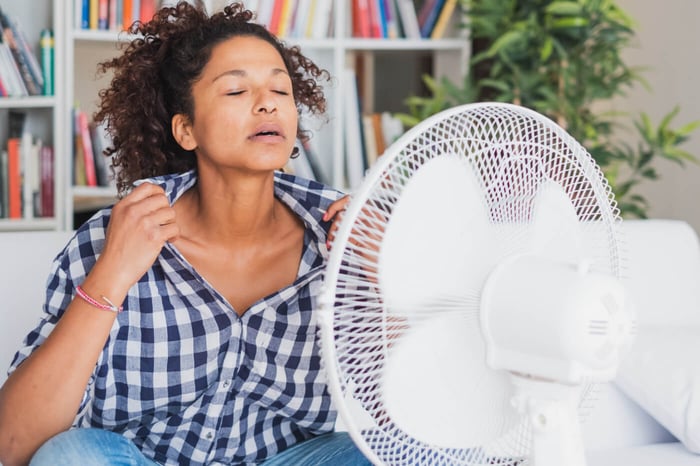
What are the Symptoms of Perimenopause?
The transition into menopause is rarely cut and dry. Many women experience symptoms including changes in their cycles, emotional state, and health as they approach menopause. This transition is called “perimenopause.”
In perimenopause, the hormones begin to shift, and the menstrual period becomes more irregular. You may notice shorter or longer cycles, have heavier or lighter periods than before, or skip a period. Some women notice different bleeding patterns, spotting, dryness, or fluctuations in mood. Other “menopausal” symptoms like hot flashes or night sweats may start to develop during this time due to the fluctuations in estrogen and progesterone.
Perimenopause Symptoms
As the body changes, most women experience a variety of symptoms. Estrogen levels fall as the ovaries start the process of shutting down egg production. This causes a disruption in the normal monthly menstrual cycle, leading to irregular periods. Some people's periods will come late or early. Other people will skip months. It's possible to experience all of the above. The period itself can last longer and be heavier than normal.
The drop in estrogen levels can cause other symptoms. It's not unusual to become irritable or to experience depression. Anxiety is common in perimenopause, as is insomnia. Some insomnia may be due to night sweats and hot flashes. As the brain tries to figure out how to cope with less estrogen, it struggles to regulate the body's temperature.
The change in hormone levels also leads to hair loss in some areas and hair gain in others. When the levels of progesterone and estrogen decrease, the body produces more androgens. With less estrogen and progesterone, hair growth on the head slows and thins. The androgens, however, can cause an increase in hair growth on the face.

Perimenopause causes hormones to yo-yo. Overall, estrogen and progesterone decrease until menopause. However, sometimes estrogen levels temporarily spike. When this happens, it can decrease the amount of bile your digestive tract produces, leading to constipation and bloating. Too much estrogen can cause the body to retain more water than normal.
Having high levels of estrogen is also the culprit when it comes to cramps, nausea, and sore breasts. The more estrogen the body produces, the more prostaglandins are in your system. These hormones give the order for the uterus to contract in order to shed its lining. Having high prostaglandins levels causes more intense cramps.
COPING WITH PERIMENOPAUSE SYMPTOMS
Since perimenopause is a normal, natural part of life, it's possible for some people to cope with the symptoms using natural methods. This includes maintaining a healthy weight, staying hydrated, eating a healthy diet, and making exercise a regular part of your routine.
Smoking is a huge factor in perimenopause, so if you smoke, quitting is in your best interest. It's important to find ways to reduce stress. Some ideas for this are yoga, meditation, mindfulness, and journaling.
Some symptoms might require a little more than natural remedies. For depression and anxiety, it's important to discuss treatment options with your doctor. You should also speak to a medical professional if you're having heavy periods that last longer than a week or interfere with daily life. Medications can help with these symptoms.
In some cases, hormone therapy is an option. You'll take low doses of estrogen and progestin via cream, pill, or skin patch. This relieves many of the more intrusive symptoms, including hot flashes and night sweats.



